When you have a degree in finance, it’s natural to want to put it to use. You might be considering an analyst career path and are looking for the right resume example so that you can stand out from other job seekers. A financial analyst resume should showcase your analytical skills and ability to solve business problems. If you don’t already know what a financial analyst does, here’s a brief overview: As a financial analyst, you will perform research and analysis on companies and their stocks. While this is not a job for someone who wants something fast-paced or exciting, being a financial analyst is stable work with excellent growth potential. It’s also among the highest paying entry-level jobs in the finance world. This guide will help you write an effective resume as you pursue your dream career as a financial analyst. Let’s get started!
Financial Analyst Resume Example

Download This Financial Analyst Resume as PDF
Financial Analyst Resume Example
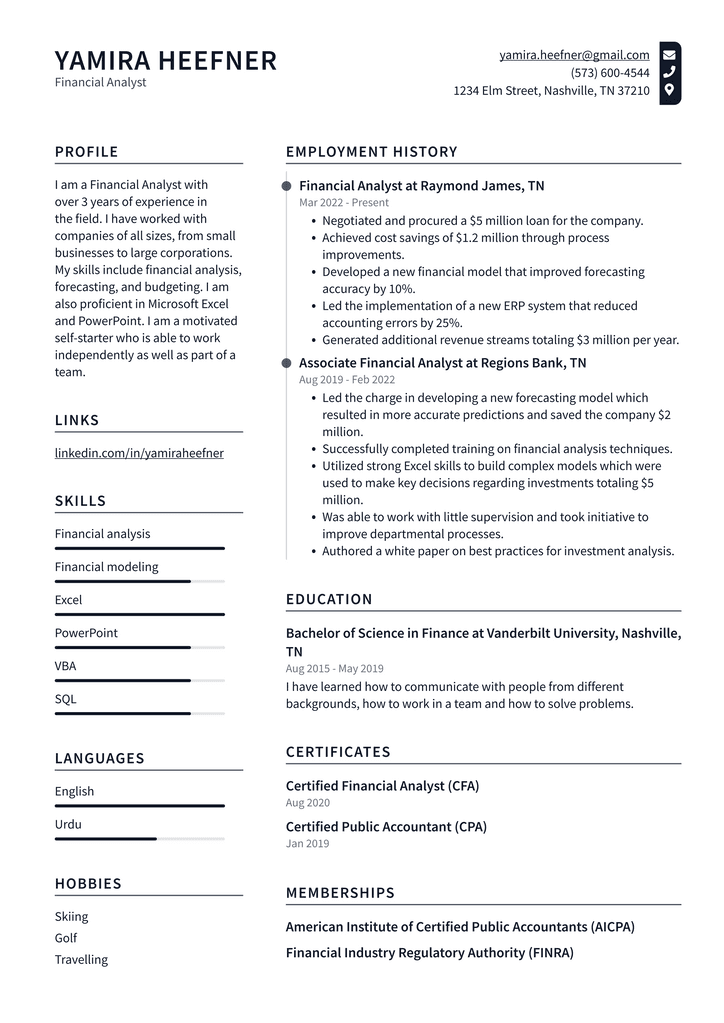
Download This Financial Analyst Resume as PDF
Associate Financial Analyst Resume Example
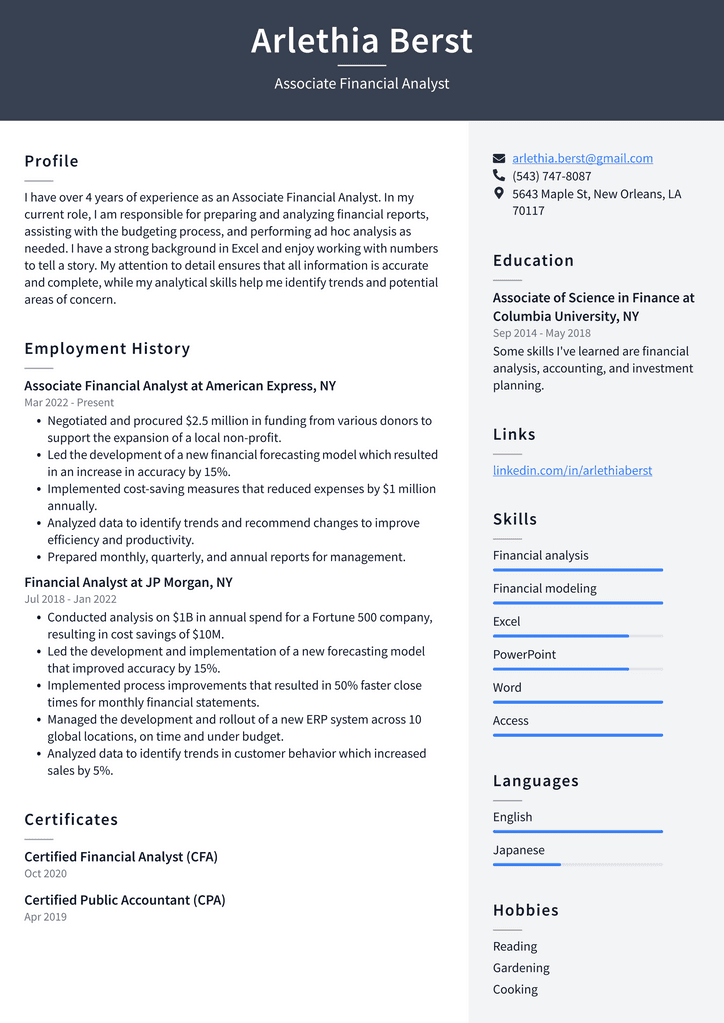
Download This Associate Financial Analyst Resume as PDF
Financial Planning and Analysis Manager Resume Example
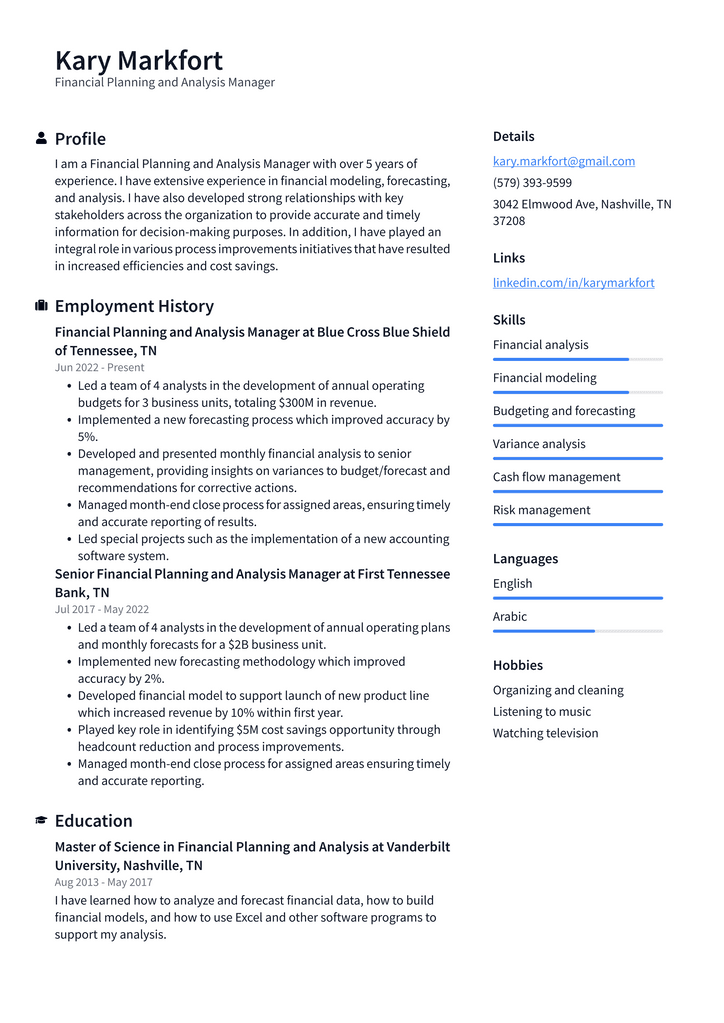
Download This Financial Planning and Analysis Manager Resume as PDF
Senior Financial Analyst Resume Example
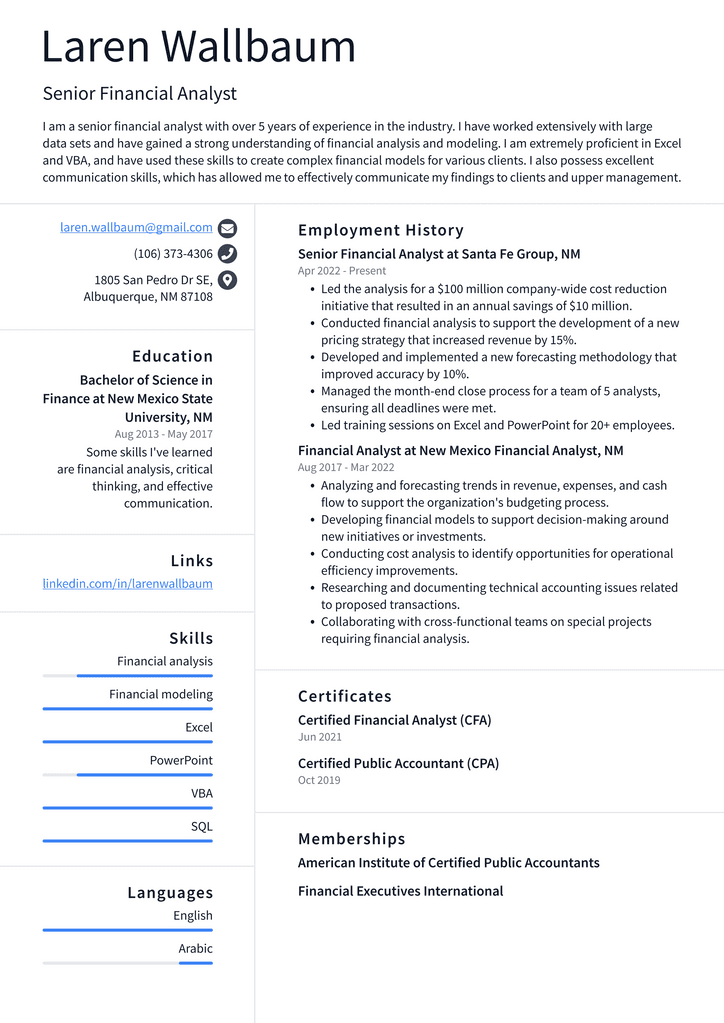
Download This Senior Financial Analyst Resume as PDF
Director of Financial Planning and Analysis Resume Example
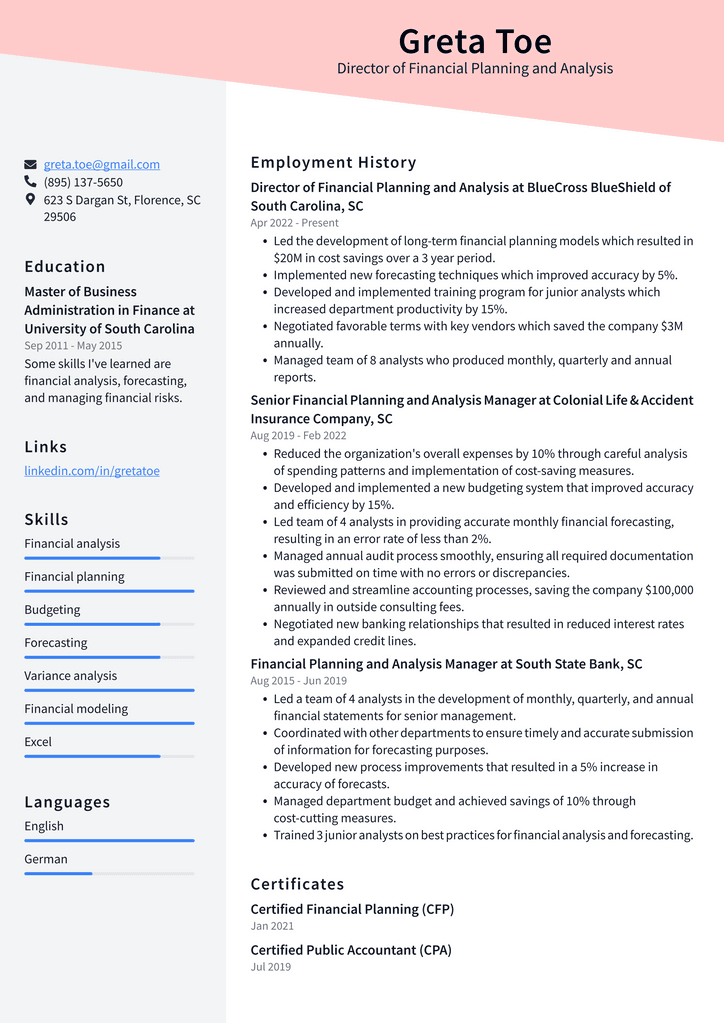
Download This Director of Financial Planning and Analysis Resume as PDF
VP of Financial Planning and Analysis Resume Example
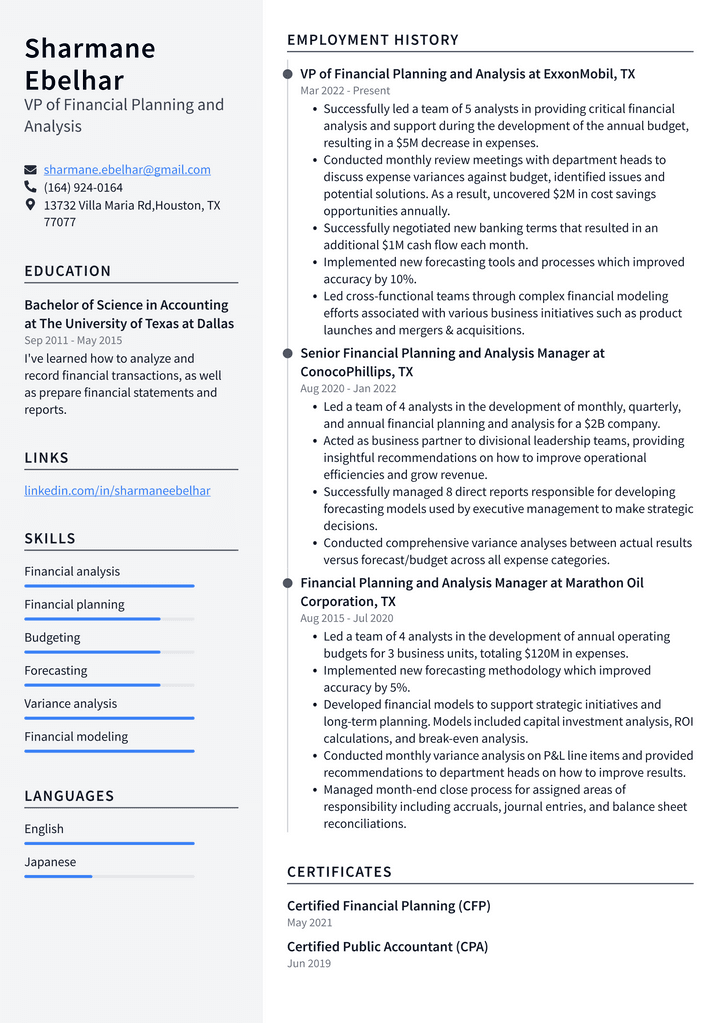
Download This VP of Financial Planning and Analysis Resume as PDF
Jumping into the world of finance
Reading this guide, you probably already have a finance-related degree. However, if you’re considering a career in finance, you should consider the following points: – Working in finance is not always about what you make; it’s about what you can do for the business and its stakeholders. – Finance is a lot more than just numbers. It’s about understanding how companies run and how to apply financial knowledge to business problems. – Finance is a service-oriented industry. You will not be judged on the number of hours you work or the number of deals you close; you will be judged on the quality of your work and whether it solves a business problem.
Build Your Resume with Keywords
If you fully understand the job description of a financial analyst, you’ll realize that it covers a wide range of skills and responsibilities. This makes it tough to narrow down the skills you want to show off on your resume. As you write your resume, focus on the keywords the hiring manager will search for in your résumé. This will ensure that your resume shows up when a hiring manager uses boolean search terms, like “financial analyst OR analyst OR accounting OR investment,” to find job seekers. Keep in mind that the more keywords you can include, the better. However, make sure you don’t overdo it. If you add every keyword in the book, your resume will become too cluttered and hard to read.
The Professional Experience Section
The professional experience section should list your most recent job first. This shows off your most recent work experience and can help you get hired quickly. Once employed, you can list your previous jobs in a separate section on your resume. The professional experience section places your most vital keywords and the essential information on your resume. You can use different formatting to highlight this section or use bolding or italics to make it pop out. If you have an internship related to finance, this is the place to put it. Most likely, you won’t have enough experience to lead with your training, especially if it was in college.
The Education Section
The education section is a great place to put your highest degree, especially if it’s in finance. If you have a double major that includes finance, that would also be appropriate to include here. You can list the finance minor in this section if you have a different major and a minor in finance. If you have a finance-related degree and no career experience, it’s OK to list your education first on the resume. Many hiring managers will still want to see your work experience, but having your degree listed first shows you are committed to this industry.
The Skills Section
You can brag about your accomplishments and skills in the skills section. This is also the place to list any soft skills necessary for the job, like communication or team-building skills. However, when writing your skills section, put yourself in the hiring manager’s shoes. Your resume is competing with dozens of other resumes, and hiring managers don’t have much time to read through each one. Therefore, you want to ensure that your skills are apparent and easy to find in your résumé.
Wrapping Up
When you’re done writing your resume, you’ll want to make sure you proofread it carefully. Typos can quickly disqualify you for a job this way. You don’t want to make careless mistakes because hiring managers will notice. Let your resume build for a few days before you start sending it out. This will give you time to go back and make edits if you discover any problems with your resume. Once you’ve sent your resume to potential employers, don’t forget to follow up. You’ll want to ensure they receive your résumé and follow up to let them know you’re interested in the job. And remember, you don’t have to be a financial analyst to use this example. Anyone in the finance industry can use this sample to create a resume that gets results.